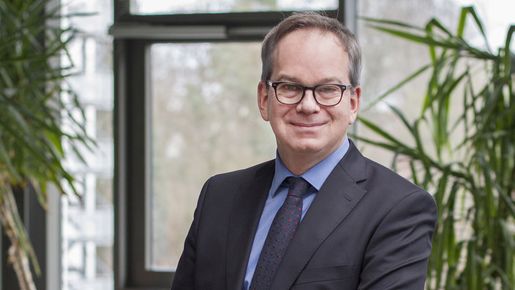“Germany and Europe need to play a key role in shaping the key 6G technology, developing and protecting technological foundations at an early stage in order to become a major player in the global marketplace with innovative and internationally competitive products. The Open6GHub is designing a holistic 6G system that will be resource-saving and energy-efficient, ensure the protection of personal data and guarantee high network availability. 6G will serve as an infrastructure for future mobile and highly secure applications based on AI and machine learning,” states the project's coordinator, Professor Hans Schotten, who is head of the Intelligent Networks research department at DFKI and of the Division for Wireless Communications and Radio Positioning at the Technical University of Kaiserslautern (TUK).
The consortium is focusing on application fields requiring very high standards of quality and security in communication technology: highly connected production, future mobility scenarios, new worlds of learning, personalized medicine and, above all, human interaction with a large number of autonomous vehicles and devices are examples of a world that will be characterized by 6G from 2030 onwards. Furthermore, 6G is also likely to play a key role in the accelerated digitization for the purpose of sustainability and the implementation of climate policy goals. Equal coverage of rural areas is another goal of the Open6GHub, for which 6G satellite connections are being investigated, for example.
From a technological point of view, the use of artificial intelligence (AI) to increase the efficiency of communication networks and the support of mobile AI-based services are key aspects. The resilience of communication networks against internal and external disturbances (network resilience), the protection of private data and the automated support of changing network topologies are further research areas addressed by the consortium.
Open6GHub will also open up the developed experimental facilities to third parties as open labs.
“6G technology is ideally suited to support AI applications, which is a great opportunity for developing a human-centric communication infrastructure, with high standards for security and privacy protection,” said Professor Andreas Dengel, Executive Director of DFKI Kaiserslautern and Head of the Smart Data & Knowledge Services research department. “We are therefore extremely delighted that we have acquired this project, since it is an important cornerstone of our research in Kaiserslautern. DFKI and the Technical University of Kaiserslautern (TUK) will jointly receive 22 million euros. It is a great testament for the excellent cooperation between DFKI and TUK,” Dengel continued.
Professor Antonio Krüger, CEO of DFKI: “Choosing Hans Schotten, our colleague, to coordinate the project is a logical decision. He is an internationally recognized expert in this field and has impressively demonstrated his extensive knowledge of mobile communications and its applications in various projects.”
DFKI's Intelligent Networks research department and Hans Schotten's chair at TUK look back on extensive experience as coordinators of collaborative projects such as KITOS, TACNET 4.0, FIND, PROWILAN and as a partner of numerous EU collaborative projects on mobile communications (in particular METIS and HEXA-X as EU lighthouse projects for 5G and 6G).
Schotten has driven the use of mobile technology in vertical industries by co-founding 5G-ACIA. Furthermore, he is coordinator of the 5G Model Region Kaiserslautern.
As part of the project, a Living Lab will be set up at DFKI, which will be operated jointly with the TU Kaiserslautern and other partners. In addition, the DFKI Living Lab SmartFactory-KL is available as a testbed.
In addition to the Open6GHub network, three other research hubs are being funded. The BMBF's “6G Research Hubs; Platform for Future Communication Technologies and 6G” funding measure is part of the BMBF's 6G Initiative as part of the German government's Future and Economic Stimulus Package. With its research on 6G, Germany is aiming to play a leading role as a technology provider among the global frontrunners and to help shape technological change at an early stage. This also contributes to the implementation of the German government's High-Tech Strategy 2025. In addition to the Open6GHub network, three other research hubs are being funded.
Project partners:
- Deutsches Forschungszentrum für Künstliche Intelligenz GmbH (Coordination)
- Friedrich-Alexander-Universität Erlangen-Nürnberg
- Fraunhofer FOKUS
- Fraunhofer IAF
- Fraunhofer SIT
- IHP - Leibniz-Institut für innovative Mikroelektronik
- Karlsruher Institut für Technologie
- Hasso-Plattner-Institut Potsdam
- RWTH Aachen
- Technische Universität Berlin
- Technische Universität Darmstadt
- Technische Universität Ilmenau
- Technische Universität Kaiserslautern
- Universität Bremen
- Universität Duisburg-Essen
- Albert-Ludwigs-Universität Freiburg
- Universität Stuttgart


